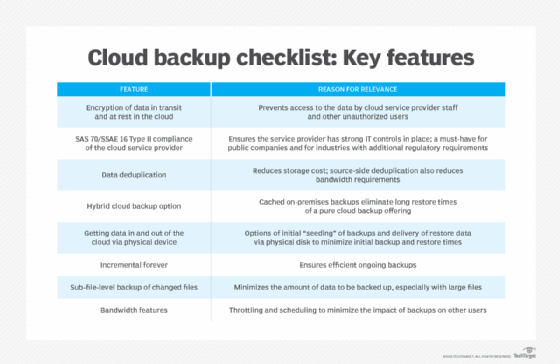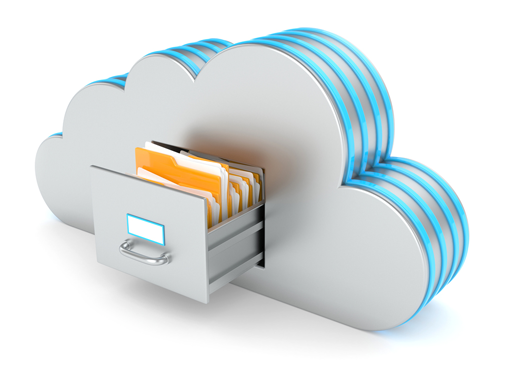

And then there are others that just aren’t worth your money. What we found out is that no provider checks all the boxes, but some come close. And since security and reliability are the foundation of good cloud backup, we dug into that too. We explored the features and functionality on offer, from basics like backups and restores to extras such as storage, syncing, and mobile backup, if available. So, we signed up with each of the top providers and put their claims to the test. Their marketing claims make them all sound perfect, but my colleagues and I decided it was time to find out for ourselves which cloud backup solutions are, in fact, the best. The product, services, and support you get aren’t nearly as good as what you get from a more-specialized cloud backup provider.Īs the demand for cloud backup grows, so do the number of providers that claim to offer the best cloud backup services on the market. They’re the fast food version of cloud backup solutions. But does that make them good? Not really. They’re popular cloud backup services from some of the biggest names in the industry. dollar UAH Ukraine Hryvnia VND Vietnamese DongĪpple iCloud, Microsoft OneDrive, Amazon Web Services, Google Cloud… Chances are you’ve heard of them. ZAR South African rand S$ Singapore dollar SEK Swedish krona CHF Swiss franc THB Thai baht TL Turkish lira AED U.A.E.KRW Korean won Mex$ Mexican peso NT$ New Taiwan Dollar NZ$ New Zealand dollar NOK Norwegian krone zł Polish zloty £ Pound sterling lei Romanian new leu RUB Russian Ruble SAR Saudi Arabian riyal.Indian rupee Rp Indonesian rupiah ₪ Israeli new sheqel ¥ Japanese yen JOD Jordanian dinar

E£ Egyptian pound € Euro HK$ Hong Kong Dollar HRK Croatian kuna HUF Hungarian forint Rs.AR$ Argentine peso AU$ Australian dollar R$ Brazilian real BGN Bulgarian lev CA$ Canadian dollar CL$ Chilean peso CNY Chinese yuan COL$ Colombian peso Kč Czech koruna DKK Danish krone.dollar £ Pound sterling AU$ Australian dollar It explains some of the core differences between three of the many (similarly named) cloud solutions available today. If you want to know more about cloud backup, it may be worth checking out this comparison article, Cloud storage vs Cloud backup vs Cloud sync, written by Jay El-Anis from UK cloud storage provider, Zoolz. When you do need to restore your data, authorized users can log in to your backup solution’s web interface, select the files they want to restore and specify the destination. Many work on a “set and forget” principle, running in the backup, automatically collecting data and documenting changes. With most cloud backup solutions, you can also count on easy set-up.

When, not if, your data becomes inaccessible, cloud backup allows you to continue working - with minimal loss of earnings or reputational damage. It is inevitable that disaster will strike at some point - even the best-managed IT infrastructure cannot guarantee 100% uptime. Do you have the skillset in-house to manage your data backup? If not, it’s probably better to go with a trusted cloud backup solution.Ĭloud backup also provides fast disaster recovery, minimizing the risk and cost of downtime. First, managing your own backup can be time-consuming and require resources that not all organizations have access to. There are a host of reasons why businesses might decide to go with a third-party cloud backup provider. This lets you see previous iterations of documents - usually for a set length of time. Versioning is another feature that is included in some cloud backup solutions. The exact nature of the storage, syncing and customization may also vary depending on which cloud backup provider you go with. Some cloud backup providers also supply physically shipped drives as part of their offering. For example, one of the main advantages of a solution like iDrive is the fact that it comes with a web-based console to inspect your backup personally. What features come with most cloud backup solutions?Īlthough you might assume that cloud backup services are all pretty similar, there are some differences in terms of the features they offer. These will only backup the data that has changed since the last backup was conducted.
CLOUD DATA BACKUP FULL
Instead, after a full backup is performed, organizations may subsequently require only incremental backups. They can employ this approach every time a backup is initiated but this is a time-consuming and storage-intensive process. For instance, businesses may initially require full backups, which copy the entire data set. There are different types of backup offered by providers.


 0 kommentar(er)
0 kommentar(er)
